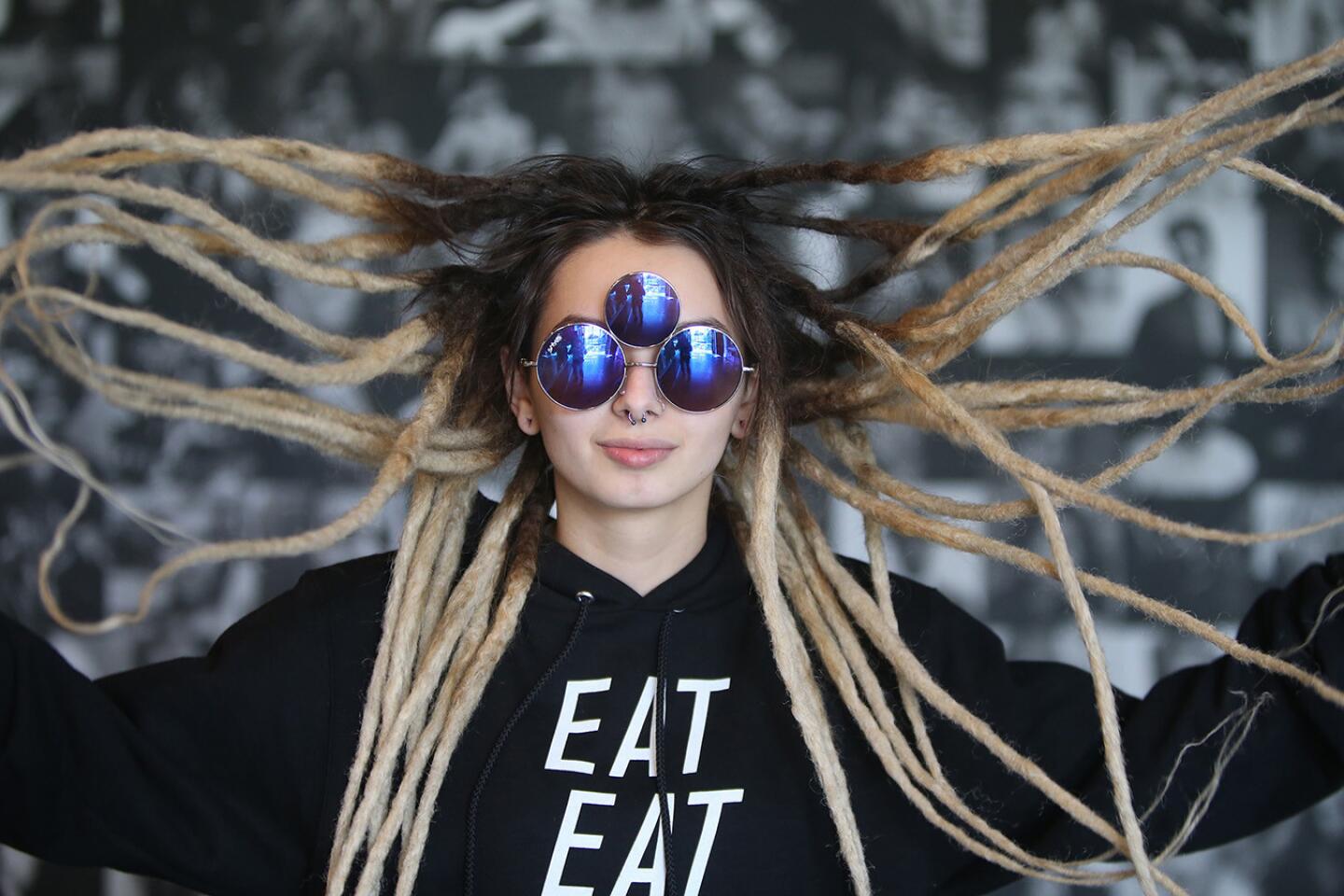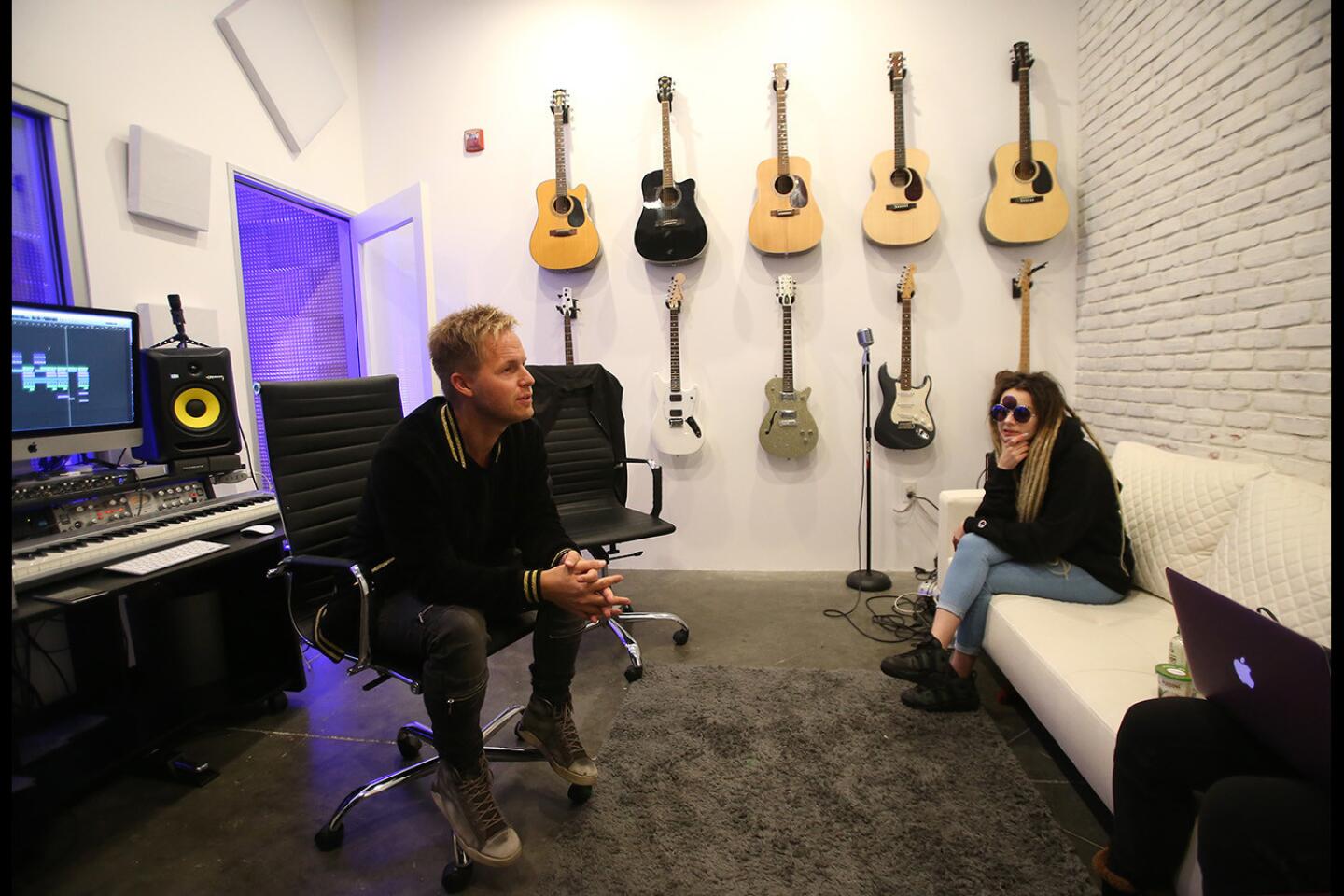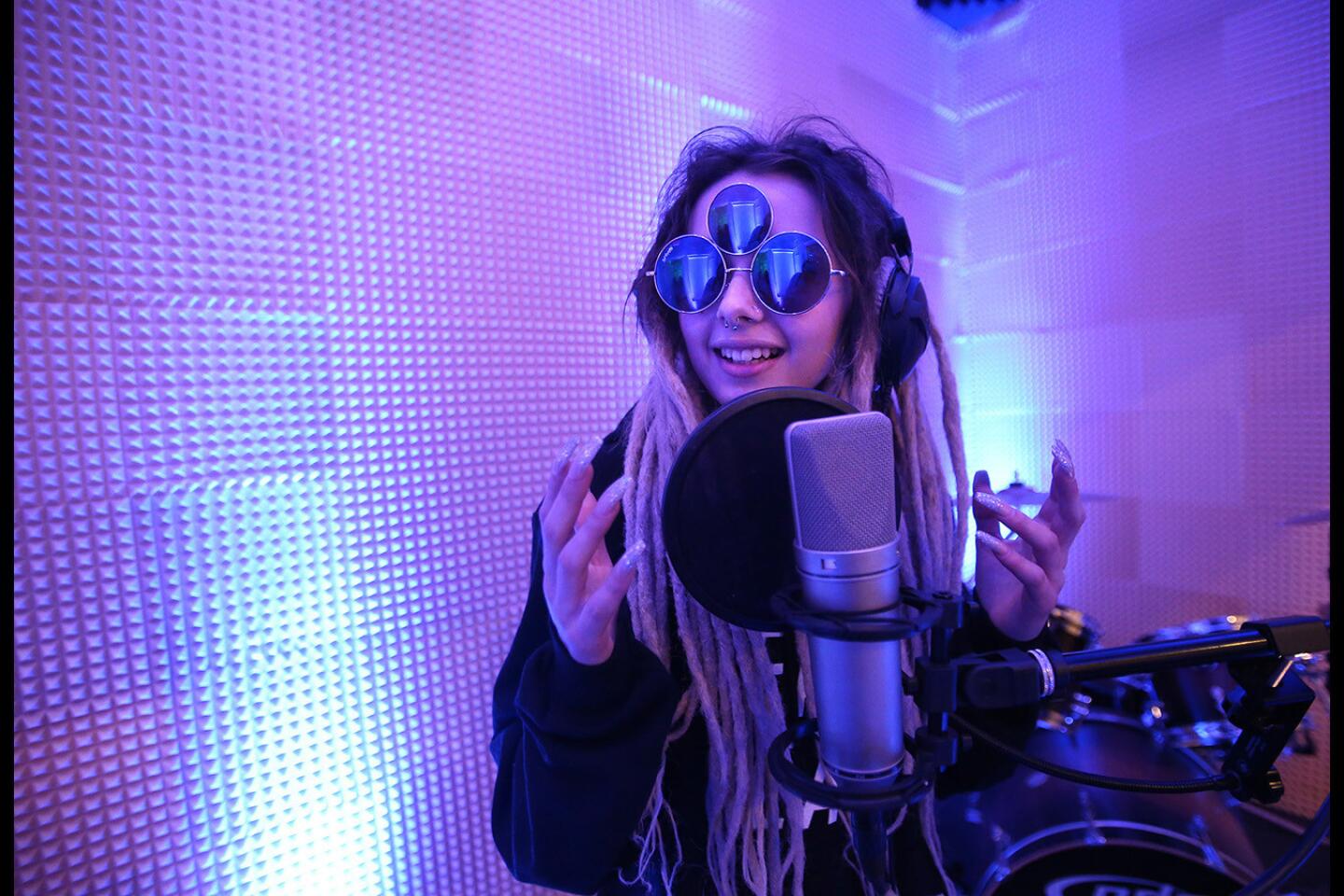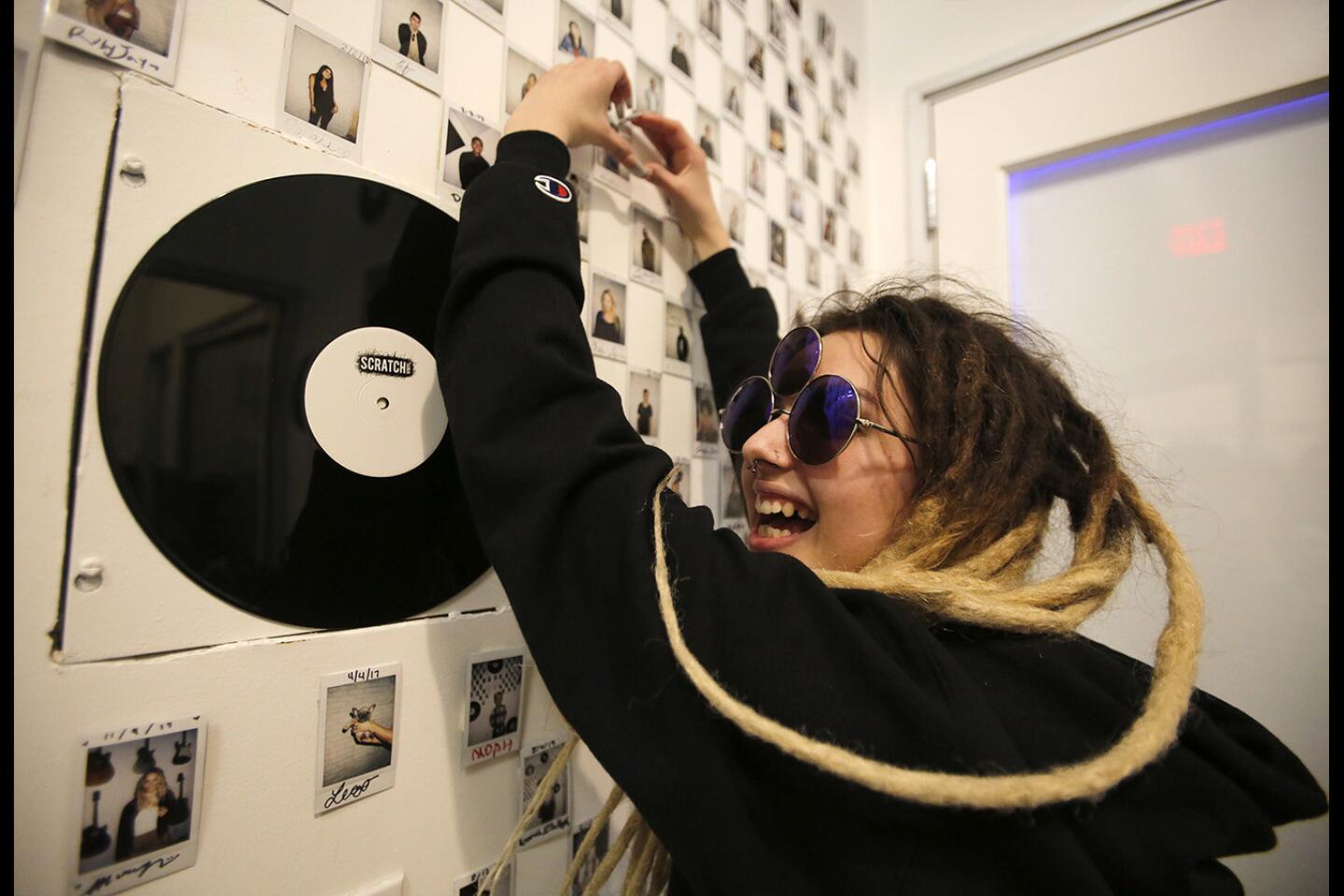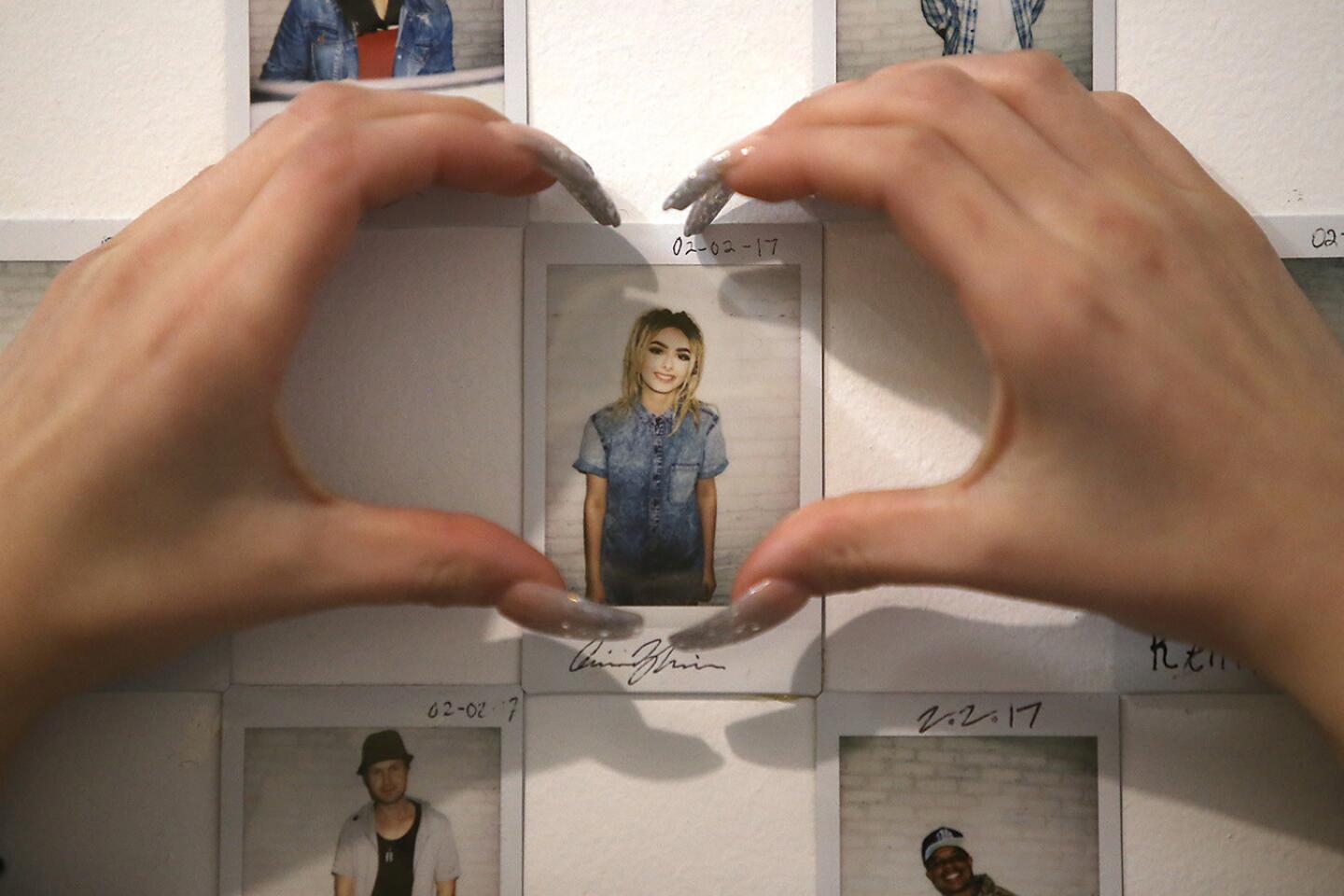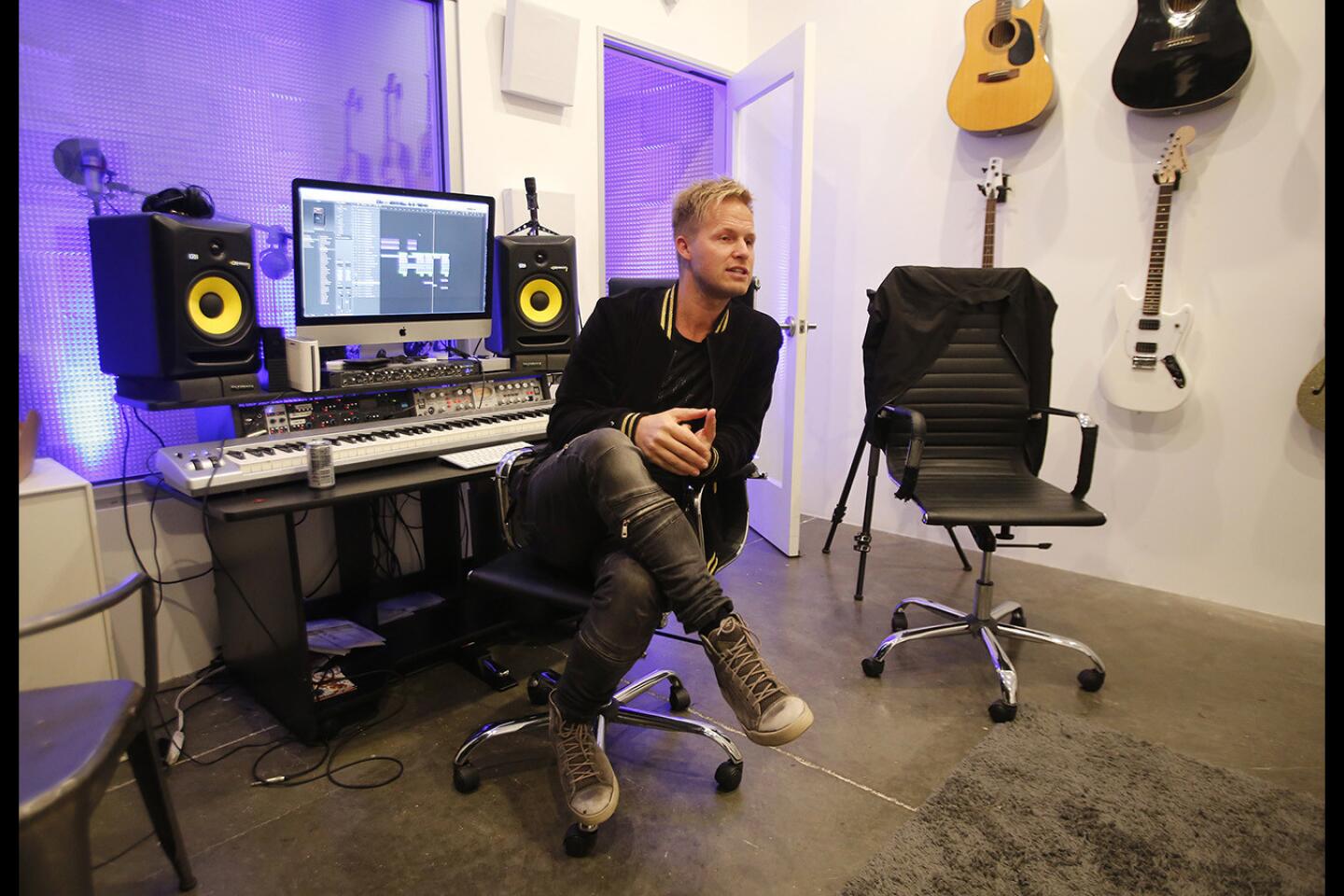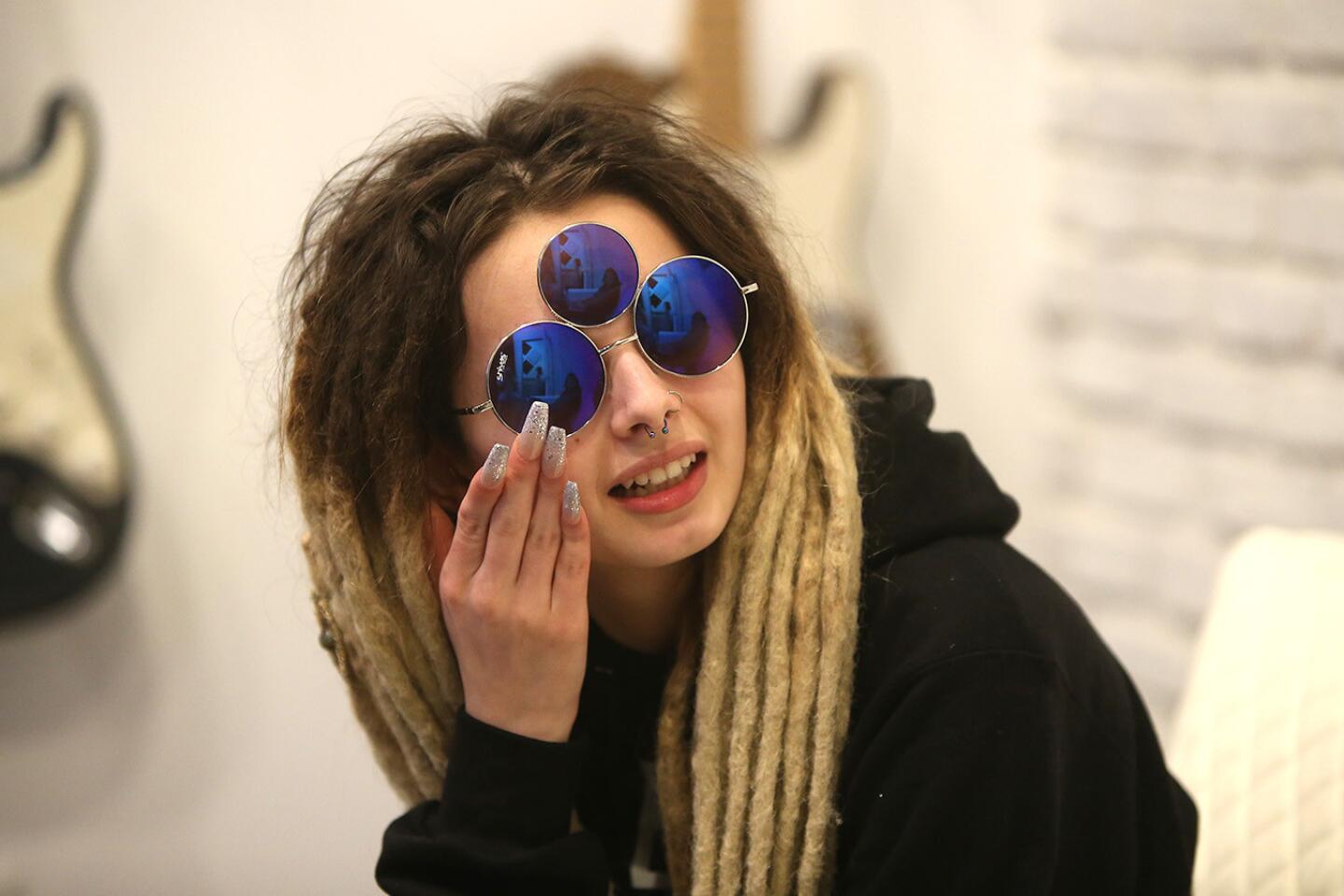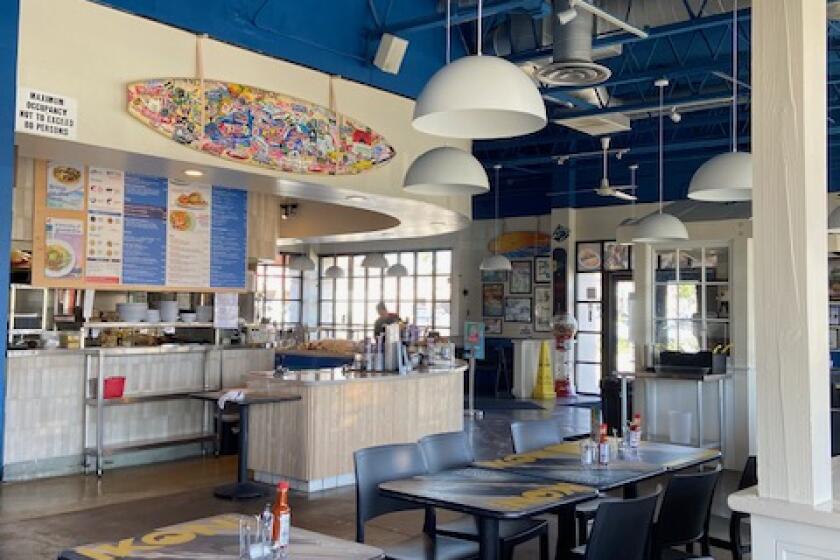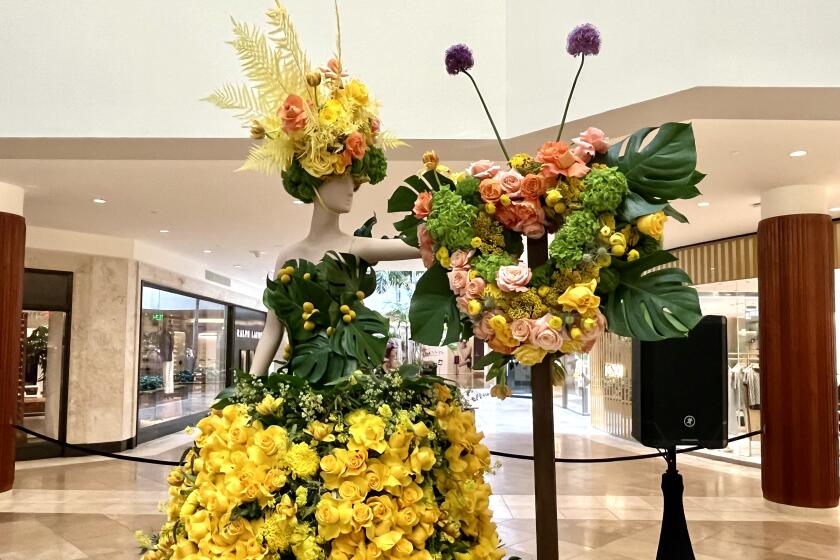Singer Zhavia’s star was born at a Tustin recording studio
Thomas Barsoe has spent thousands of hours helping thousands of young singers figure out who they are as an artist — what their style is, their sound and their look.
And then one day, through his door, walked a 15-year-old girl.
“And I didn’t have to help her with anything,” Barsoe says. “I just gave her a mic and we were good to go.”
That girl was Zhavia.
Now, one year later, just turned 17, Zhavia is an overnight star with a soulful voice and an original style.
Since first appearing on the Fox TV show “The Four: Battle for Stardom” in January, her Instagram has blown up, with 2,000 followers turning into nearly 2 million. In fact, Zhavia has far more followers than the show itself.
Her fans have launched thousands of Zhavia fan pages. They send her fan art. They tattoo her face on their body parts.
When she tweeted that she thought pigs were cute, someone sent her a pig. She named him Wilburrr the Icy Pig, a homage to rapper Gucci Mane, who likes to say “brrr,” as in ice, as in diamonds. Now even Wilburrr has 80,000 Instagram followers.
But more importantly, music industry heavyweights are lining up to work with her. She’s already had a writing session with record producer Rahki and a business meeting with Sean Combs, aka Puff Daddy, P.Diddy.
“It’s like you’re at the fair and you can pick from the biggest teddy bears on the top shelf,” says Barsoe.
And it all started in the District at Tustin. At the OC Hit Factory. With Thomas Barsoe.
Jackpot.
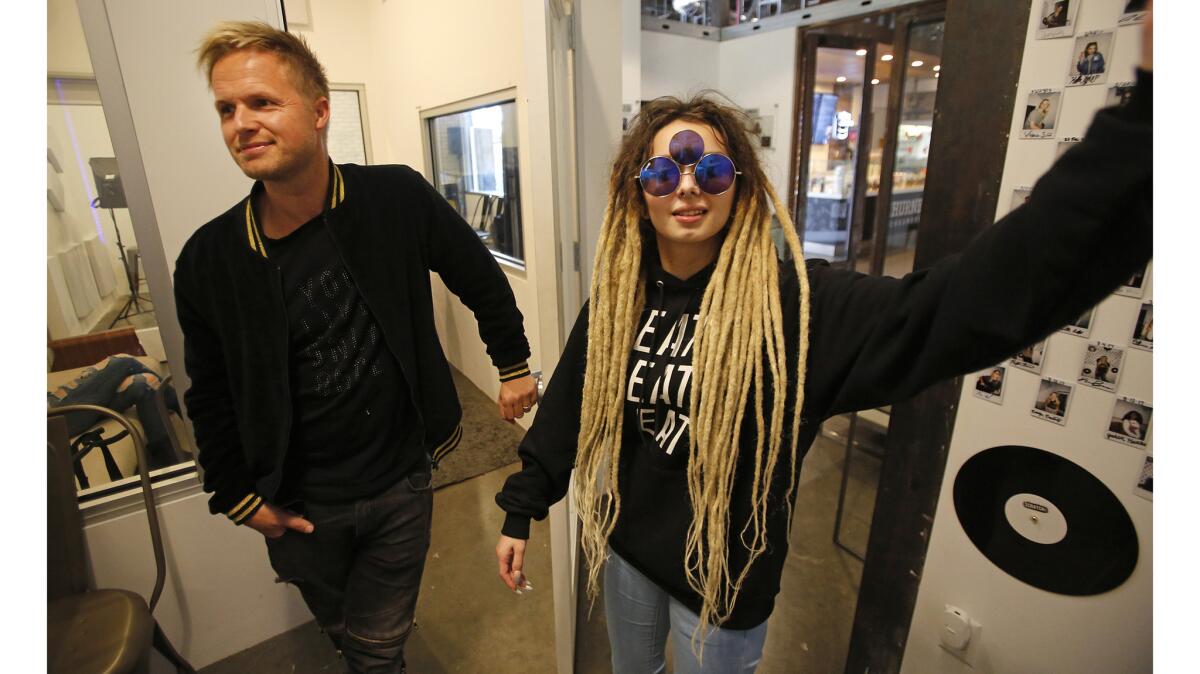
A former recording artist himself (he was super big in Japan), Barsoe came to San Juan Capistrano from Copenhagen in 2008. Burned out on touring, he decided it was time to stay put with his wife and two small children. He began visiting local high schools to see what opportunities they were offering when it came to music education.
“It was all pretty old-fashioned,” he says. “The choir. The flute. There was just a real lack of songwriting in young people’s lives. Why is that not part of the curriculum? The game has changed. I made more money writing songs than I did performing them.”
In 2010, he built a studio in his house. Word spread and he began working with a steady stream of young singer/songwriters, some of whom went on to the big time (Jordyn Simone on “The Voice,” Jessica Cabral on “American Idol,” John Lindahl on the “The X Factor.”)
In 2013 he moved his studio to Anaheim and named it the OC Hit Factory. “But it was in a dark and boring industrial neighborhood,” he says. “I wanted it to be part of a community and not hidden away.”
The talent kept streaming in, though, and in 2015 Barsoe signed a deal to become a subsidiary record company for Sony Music.
The next year he decided it was time to design his dream studio. He chose Union Market, a cozy hipster food hall at the District busy with young foot traffic.
Barsoe had a “listening bar” built outside the studio so anyone can sit down with a coconut pudding or a craft beer, put on some headphones and actually hear what’s going on inside; the singer singing, the producer critiquing, the mixing. You can also watch what’s going on through the windows.
The Factory is now visited by all the big TV talent shows, including “American Idol, “The Four,” “The Voice” and “America’s Got Talent,” as well as DreamWorks. They hold auditions there, and also scout local talent. Barsoe won’t work with you unless you pass an audition, so the singers are already vetted.
“You can compare it to your varsity soccer team,” he says.
When “The Four” set up an audition at the Factory last October, Barsoe didn’t think of signing up Zhavia. She’s not the type of girl to wear a pinny and stand in line for a singing competition, he says. She plays guitar and piano and writes her own songs, a mashup of R&B, reggae and hip-hop, and planned to make it on her own.
But on the day of the auditions she happened to be in the studio. The producers asked her to sing for them. Then they asked her to join the show. She turned them down. Three times.
It wasn’t until Barsoe convinced her to go to L.A. to meet the show producers that she decided “The Four” was all about fostering a singer’s originality, and she signed on.
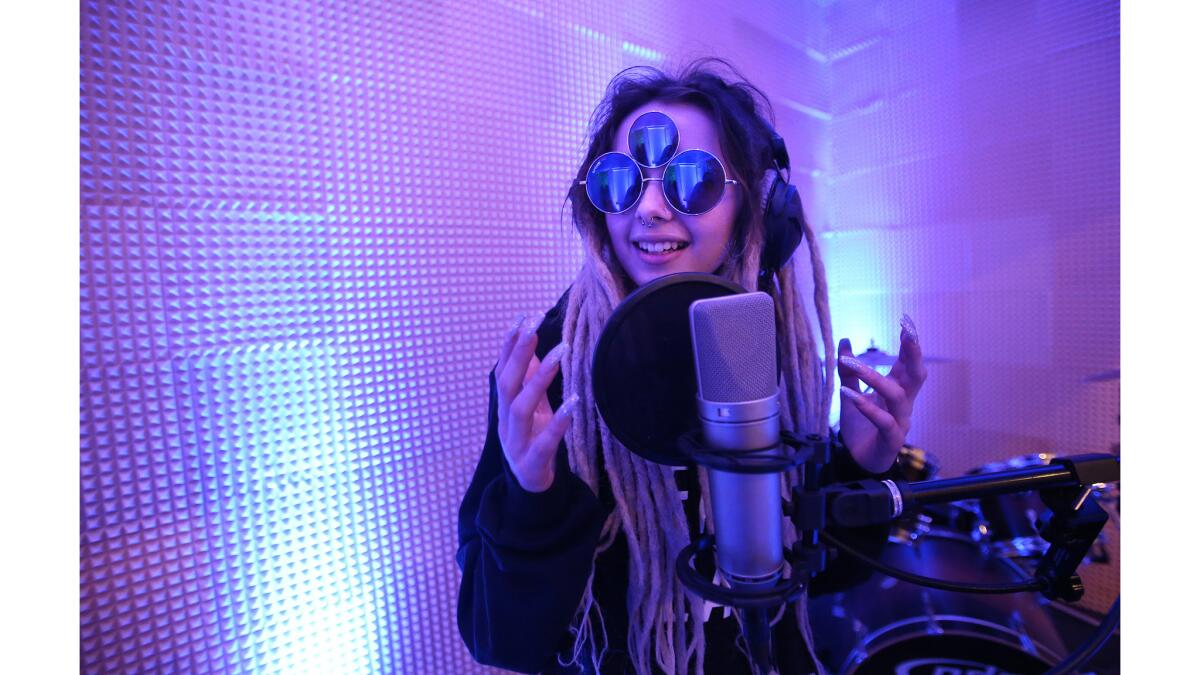
Zhavia thinks it’s her originality that has won her so many fans.
“I was just doin’ my thing up there,” she says. “I’m not trying to put on an act. Being myself inspires people to be themselves.”
On the day she met a writer for an interview she wore a pair of Third Eye Sunglasses (it has an extra lens on the forehead). She also had a couple of nose piercings, long glittery fingernails and two-toned (blue and blond) dreadlocks that she has been curating since the age of 12 — and sometimes wears in braids and buns.
“She has become a little style icon,” Barsoe says. “Straight away from episode one, she just hit a nerve. She’s super real. I think that’s what people connect with.”
And then there’s that voice. Soulful, bluesy, smoky.
“It makes you think of some of the old greats,” Barsoe says. “It’s not your average radio voice. She’s got some old soul going on there.”
Is it unnerving, particularly at such a young age, that she’s hit such a nerve?
“It’s crazy that people love me that much,” she says. “But it’s awesome.”
Her first tour is set for May and June. She’ll hit eight cities in the U.S., including Los Angeles. And an announcement that she is signing with “the biggest record label in the world” is imminent.
As for what she plans to do with all the money she’s about to make?
“It’s a big step toward supporting my family,” she says. “That’s where the majority of it will be going.”
Zhavia’s mom, Bobbi Jo Black, is a metal singer and former receptionist at a music school. Her dad is an R&B musician.
They let her drop out of Monrovia High School after her freshman year and finish up online. She got her diploma at 16.
“I’m just appreciating everything,” she says. “The things that God gives me. Remembering where I came from … and everyone’s hard work around me that brought me to where I am.”
As Zhavia’s stock rises, so does the Hit Factory’s. The number of singers calling for an audition has quadrupled.
“We call it the Zhavia affect,” Barsoe says. “It’s the kind of publicity you can’t dream up. I just have to find a way of cloning myself. It a wonderful problem to have.”
Of course everyone who calls is looking to be the next Zhavia.
“There’s never going to be a next Zhavia,” Barsoe says. “But there’s going to be the next someone else.”
Lori Basheda is a contributor to Times Community News.
All the latest on Orange County from Orange County.
Get our free TimesOC newsletter.
You may occasionally receive promotional content from the Daily Pilot.
